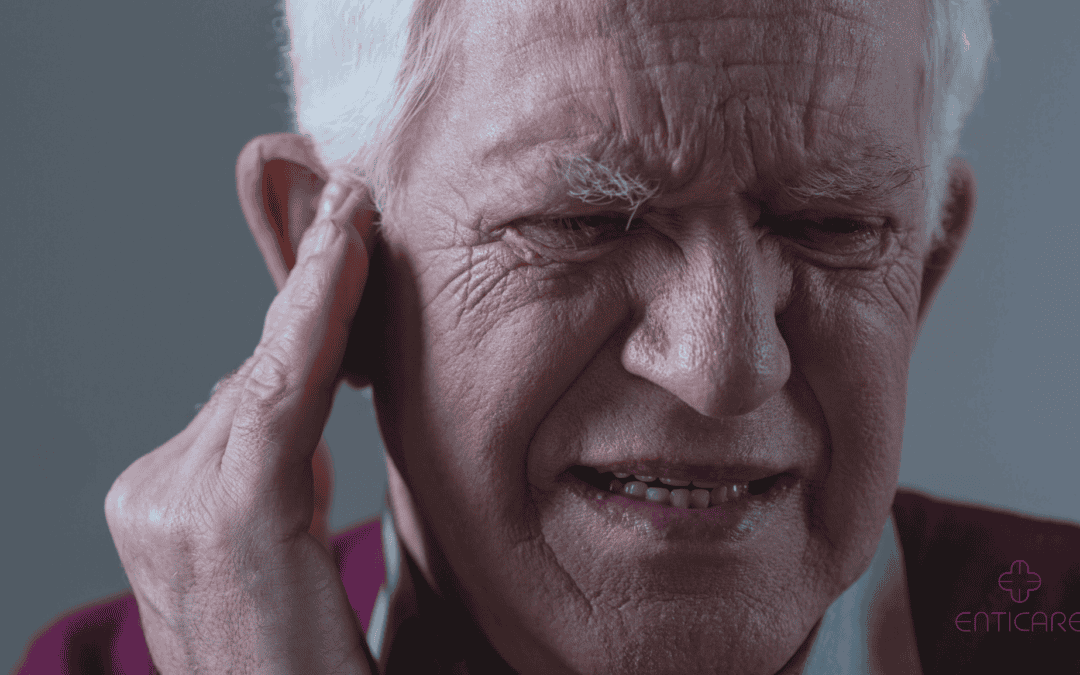The Basics of Tinnitus and Dementia: What Are They?
What is Tinnitus?
Tinnitus describes the perception of noise in the ears or head, even without an external source. This constant ringing, buzzing, or hissing sound can range from mild to debilitating. Tinnitus affects millions globally and has many potential causes, including exposure to loud noises, ear infections, and stress.
Understanding Dementia
Dementia isn’t a single disease but a term for symptoms impacting memory, problem-solving, and cognitive function. Dementia results from abnormal brain changes that interfere with daily life. Alzheimer’s disease represents the most common form, although other forms, like vascular dementia, also exist. Alzheimer’s disease, a neurodegenerative disorder, is associated with early-onset dementia and involves a complex interplay of cognitive decline, neuropsychiatric symptoms, and sensory impairments such as hearing loss. This neurodegenerative disorder manifests behaviors and mental issues, increasing the risk of developing Alzheimer’s as a result of progressive cognitive decline.
Exploring the Link
Emerging research connects tinnitus with a heightened risk of developing dementia. Scientists hypothesize that because tinnitus constantly strains the brain, it may accelerate cognitive decline in susceptible individuals. By understanding this link, we can better protect mental health. A study published in the Frontiers in Aging Neuroscience supports this connection by suggesting that persistent tinnitus can contribute to changes in brain function related to cognitive decline.

How Tinnitus Affects Brain Health
Overstimulation of the Brain
Hearing loss and tinnitus cause the brain’s auditory system to stay in a near-constant state of stimulation. Unlike typical sound processing, tinnitus doesn’t allow the brain to rest, which leads to overstimulation. This overstimulation diverts brain resources from other cognitive functions like memory and problem-solving. Researchers believe this continuous “sound” processing exhausts the brain, contributing to cognitive decline.
Sleep Disruption and Cognitive Health
Tinnitus can cause significant sleep disruptions. Restful sleep is essential for memory consolidation and cognitive health. Persistent ringing in the ears can make it difficult to fall asleep or stay asleep, leading to fatigue, mood swings, and decreased mental clarity. Chronic sleep issues have been shown to increase dementia risk, making this an essential aspect of the tinnitus-dementia connection.
The Science Behind the Tinnitus-Dementia Connection
Structural Brain Changes
Age-related hearing loss and tinnitus may cause changes in specific brain regions. Studies using MRI scans have shown that people with chronic tinnitus often display structural changes in the brain’s gray matter, which houses critical memory and cognitive processing functions. These alterations could set the stage for future cognitive decline.
Altered Brain Wave Patterns
Scientists have also observed abnormal brain wave activity in those with tinnitus. Brain waves in tinnitus patients show increased activity in specific frequency ranges, especially in regions associated with attention and memory. These altered brain waves can indicate cognitive strain and may contribute to the connection between tinnitus and dementia.
Protecting Your Brain: Practical Steps
Prioritize Hearing Health
Routine hearing checks can play an essential role in maintaining physical and mental health by detecting tinnitus early. By identifying the underlying causes of tinnitus, such as hearing loss, individuals can work with healthcare providers to manage symptoms effectively. Audiologists often recommend treatments, including hearing aids, which may reduce tinnitus severity and prevent further hearing loss.
Practice Brain-Boosting Activities
Stimulating your brain through activities like reading, puzzles, and learning new skills promotes brain health and cognitive resilience. Engaging in these mentally stimulating activities supports the brain’s overall function. It can lead to improved cognitive performance, particularly among older adults. Activities that challenge memory and focus strengthen mental stamina, which can help counteract some effects of tinnitus.
Sleep Hygiene and Stress Reduction
Improving sleep habits can lessen tinnitus symptoms and boost brain function. Creating a relaxing nighttime routine and keeping a consistent sleep schedule help you achieve restorative sleep, benefiting memory and cognitive health. Reducing stress through mindfulness techniques or regular physical activity also supports brain health and lessens the impact of tinnitus.

Seeking Professional Help: Why Early Intervention Matters
Comprehensive Hearing Loss and Cognitive Assessments
Seeking a professional assessment serves as a critical first step for anyone experiencing tinnitus or cognitive difficulties. Audiologists can evaluate your hearing health, identify any patterns, and recommend therapies or tools to help manage tinnitus effectively. Many hearing health providers now offer cognitive assessments alongside hearing evaluations to detect any early signs of decline.
Exploring Tinnitus Management Options
Various treatment options exist for managing tinnitus, from sound therapy to cognitive-behavioral therapy (CBT). Sound therapy helps mask tinnitus sounds, offering relief from persistent ringing. Conversely, CBT allows patients to retrain their brain’s response to tinnitus, making the condition less intrusive in daily life.
Take Action for Better Hearing and Cognitive Health
Understanding the link between tinnitus and dementia underscores the importance of proactive healthcare. Tinnitus doesn’t have to lead to cognitive decline, but awareness and timely action make a significant difference. Regular hearing assessments and lifestyle changes support brain health and can help manage tinnitus symptoms effectively.
Ready to take the next step in managing your hearing health? Schedule an appointment with a hearing specialist for personalized support and guidance. Book an Appointment Today.


